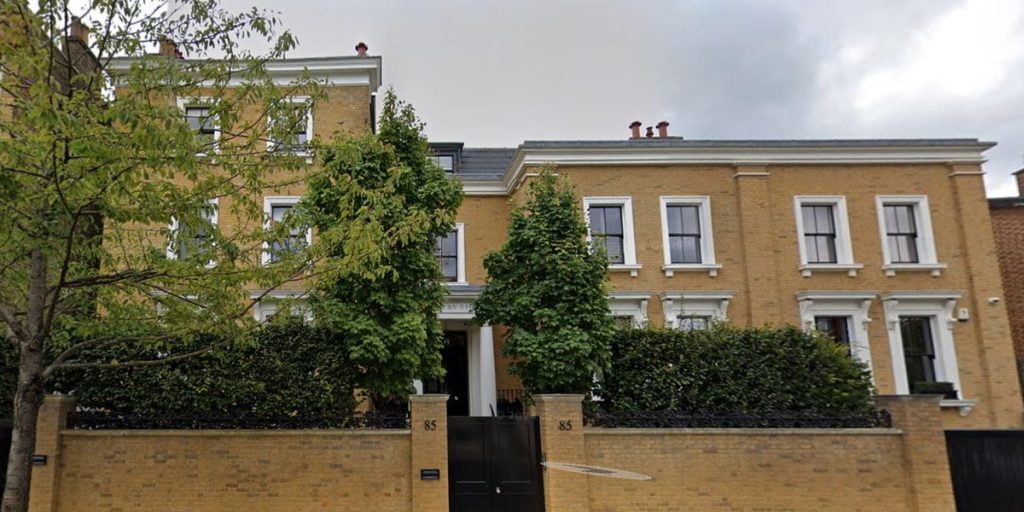A Billionaire Couple Wins Refund for Moth-Infested London Mansion
In a high-profile legal battle, a billionaire couple has successfully won a refund for a luxurious London mansion they purchased in 2019, after discovering it was severely infested with moths. The couple, Iya Patarkatsishvili and her husband Yevhen Hunyak, accused the seller, property developer William Woodward-Fisher, of concealing the infestation before the sale. A UK High Court judge ruled in their favor, ordering Woodward-Fisher to refund a significant portion of the £32.5 million (approximately $40 million) purchase price, along with substantial damages. The case highlights the consequences of withholding critical information in property sales and serves as a cautionary tale for both buyers and sellers in the high-stakes real estate market.
The Discovery of the Infestation and Its Impact
The couple purchased Horbury Villa, a grand 19th-century mansion in Notting Hill, west London, in May 2019. Within days of moving in, they noticed moths flying around and landing on their cutlery, clothes, wine glasses, and even toothbrushes. Despite their efforts to combat the problem, including swatting hundreds of moths daily, the infestation persisted. Pest control experts eventually traced the source of the issue to the ceiling insulation, which required replacement at a cost of £270,000. The couple’s dream home quickly turned into a nightmare, as the moth infestation made everyday life unbearable.
The Seller’s Knowledge of the Problem
The court found that Woodward-Fisher had been aware of the moth infestation since early 2018 but failed to disclose it to the buyers. Patarkatsishvili and Hunyak alleged that the seller knowingly concealed the issue to complete the sale. Woodward-Fisher defended himself by arguing that moths were not classified as vermin and therefore not relevant to the property’s condition. However, the judge rejected this argument, ruling that the seller had a duty to disclose the problem, which significantly impacted the property’s value and livability. The judgment emphasized that buyers have the right to know about defects that could affect their decision to purchase a property.
The Legal Outcome and Financial Repercussions
The High Court ruled that Patarkatsishvili and Hunyak could return the mansion to Woodward-Fisher and receive a refund minus £6 million for the time they lived in the property. Additionally, they were awarded £4 million in damages, which included £15,000 for moth-damaged clothing and £3.7 million for stamp duty they paid during the purchase. The couple’s lawyer, Chris Webber, stated that the ruling should serve as a warning to unscrupulous property developers who might try to exploit the “buyer beware” principle by concealing known defects. The case underscores the importance of transparency in property transactions and the legal consequences of failing to meet this obligation.
The Individuals Behind the Headlines
Iya Patarkatsishvili, a theater director, is the daughter of the late Georgian billionaire Badri Patarkatsishvili, who was once worth an estimated $12 billion according to Forbes. After her father’s death in 2008, some of his vast assets passed to her. Her husband, Yevhen Hunyak, is a wealthy businessman. On the other side of the legal battle is William Woodward-Fisher, a former rower who competed for the UK in the 1970s and has since built a career in property development. The mansion at the center of the dispute, Horbury Villa, is a historic property that spans 11,000 square feet after renovations, featuring luxury amenities such as a pool, spa, cinema, and gym.
The Broader Implications of the Case
The ruling in favor of Patarkatsishvili and Hunyak sends a clear message to property sellers and developers: honesty and transparency are essential in real estate transactions. The case also raises awareness about the potential hidden costs and challenges of purchasing high-value properties, particularly older homes that may require extensive maintenance and repairs. For buyers, the verdict reinforces the importance of thorough due diligence before finalizing a purchase, while for sellers, it highlights the legal risks of withholding information about a property’s condition. As the real estate market continues to evolve, cases like this one will likely influence how buyers and sellers navigate the complexities of property transactions in the future.
This case not only resolves the issue for the billionaire couple but also sets a precedent for future disputes, reminding all parties involved in real estate that honesty and accountability are paramount.












